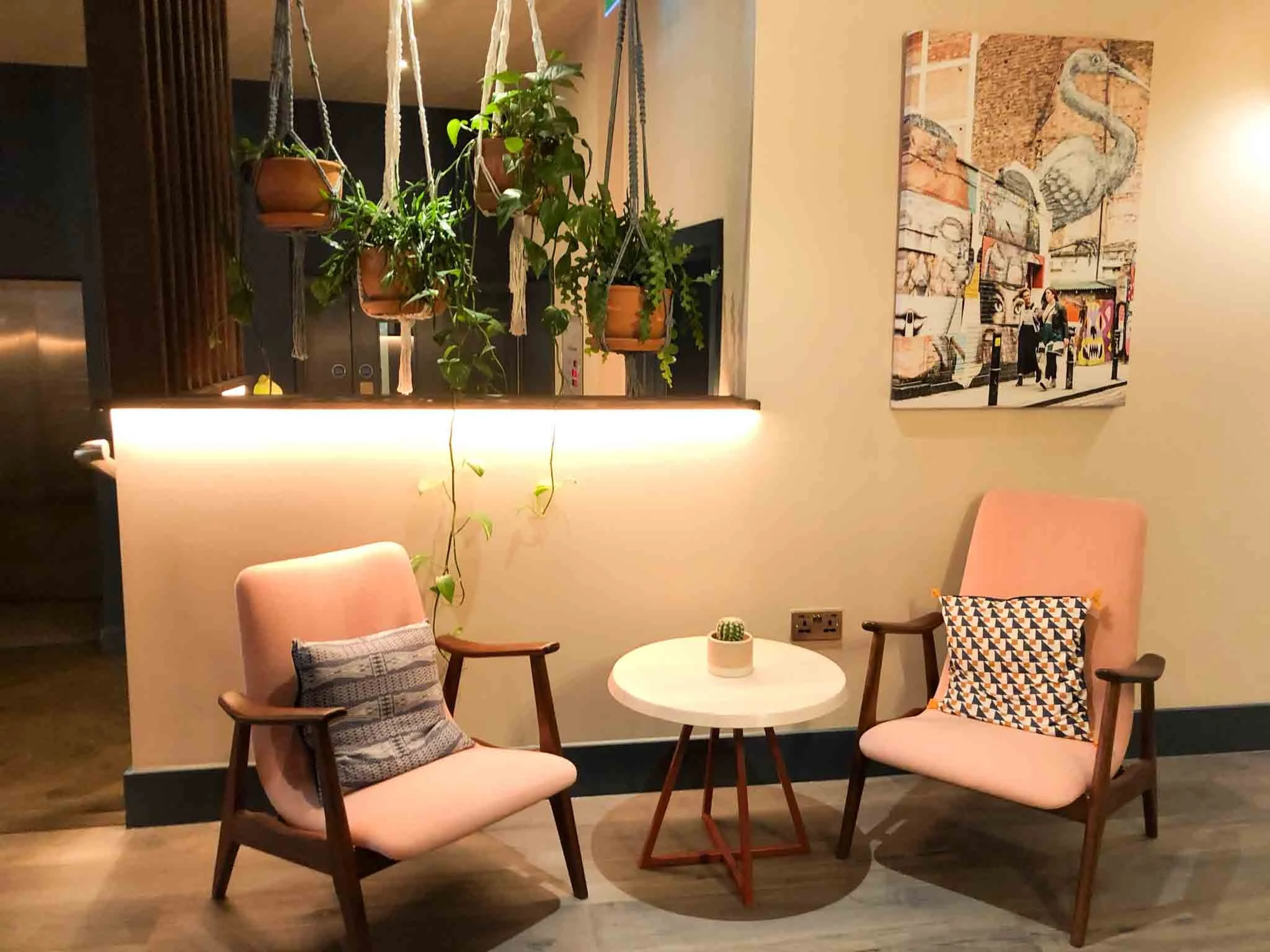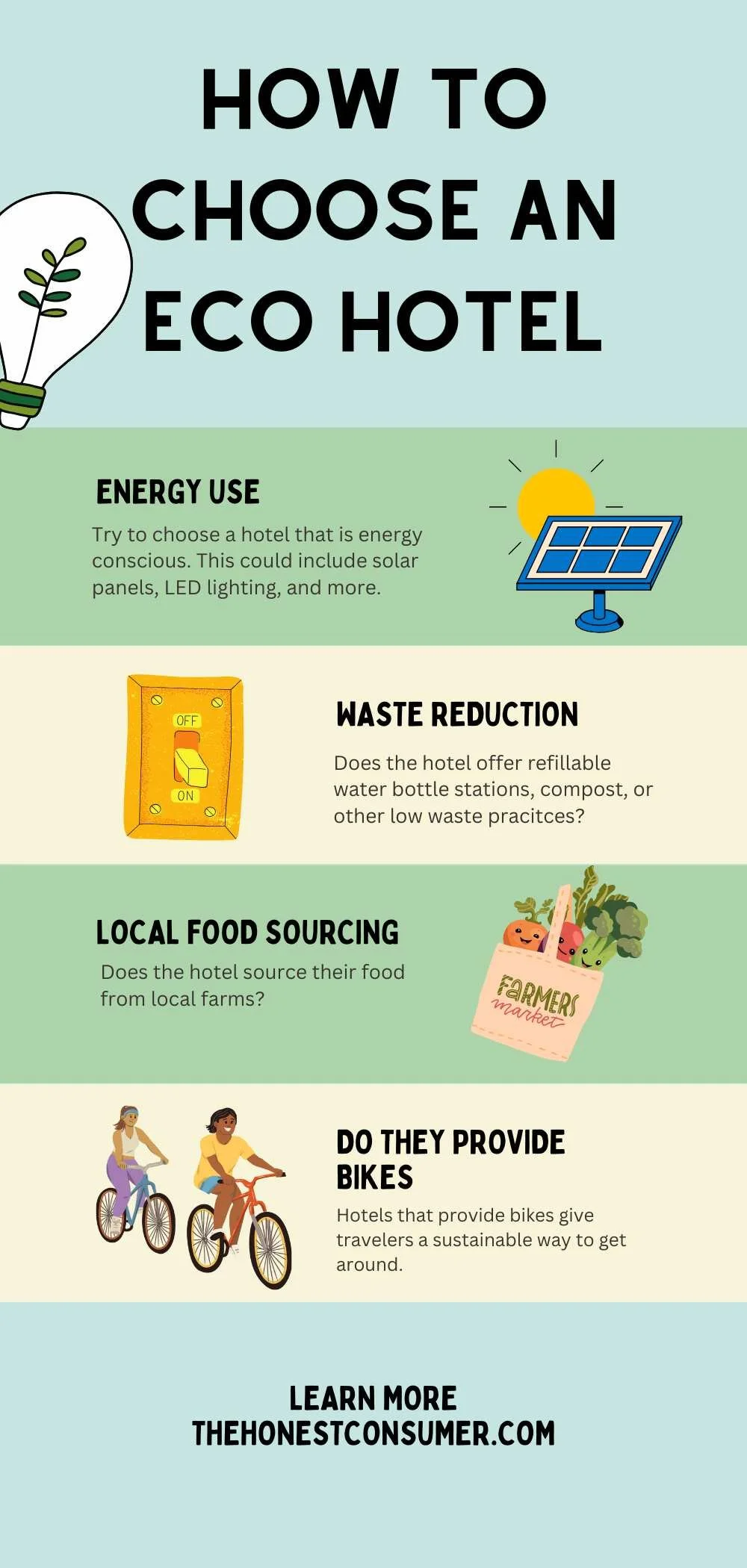What to Look for in an Eco Hotel: Tips for a Greener Getaway
Hotels with sustainable practices are on the rise as conscious consumers continue to explore greener travel options.
Whether traveling to a city or exploring a lodge in nature, this sustainable travel guide will explore what to look for in eco-friendly accommodations.
Climate change and biodiversity loss are two interconnected issues that impact the hospitality industry.
Hotels, particularly resorts, can have large negative environmental impacts.
Read my list of sustainable hotels!
Exploring the Environmental Impact of Hotels & Resorts
American hotels create almost 60 million tons of carbon emissions per year. Building a hotel or resort requires a large amount of energy and water, and a deep carbon footprint.
Once a hotel or resort is established, there are running and maintenance costs which also require energy and water.
And there’s the waste to consider, from construction waste during the building phase to the plastic bottles and bags, single-use toiletries, straws, and food waste from hotel restaurants and bars that have been par for the course in the daily running of hotels.
How and where the hotel is built can have an impact as well for the local community.
This includes not only the type of materials used but also the local people and animals who may be displaced when land is cleared; surface soil erosion caused by construction, and the disruption of natural water flows.
You can look for hotels who follow green practices!
What Sustainable Initiatives Should Consumers Look for When Picking a Hotel or Resort?
The ideal situation is for hotels and resorts to be designed and built eco-consciously from the get-go. This is known as bioclimatic architecture.
But that does not mean that long-established places have been sitting on their laurels, nor should they.
Hotels and resorts are implementing sustainable measures when making renovations, as well as in the general running of the hotel, whether it’s conserving energy and water or cutting down on waste and use of single-use plastics.
Here’s what you can look for when picking an eco-friendly, sustainable hotel or resort.
ENERGY USE
Renewable energy sources such as wind and solar.
LED lighting and Energy Star-compliant appliances.
Smart-energy sensors that allow areas to turn off heating or air conditioning when windows are open and to automate switching lights on and off as necessary.
Providing bikes for guests
WATER CONSUMPTION
Rainwater harvesting and greywater recycling systems.
Tank fill diverters in toilets and low-flow showers.
A towel-and-sheet program that minimizes laundry loads.
This is a cool eco-friendly initiative I saw at my hotel in London.
WASTE REDUCTION
Bulk toiletry options that can be refilled instead of supplying single-use options.
Composting and recycling.
The elimination of plastic water bottles.
Use of sustainable materials.
FOOD SOURCING
Support local farmers & growers by sourcing local foods
Organic ingredients
Seasonal menus that incorporate local grown foods
Support Local Economy
Do they support and honor the local culture?
Featuring local brands (for example: toiletries)
Feature local artists in hallways or entry ways of hotel
These are just a few sustainable design measures to look out for.
There is much more hotels and resorts can do such as working within their local communities, such as seeking local suppliers and selecting seasonal food for their restaurant kitchen.
A spot of gardening can help too: green roofs or a rooftop garden can stock the kitchen with organic food, reflect light, and slow rain runoff. Going the extra mile has even seen hotels and resorts fund environmental research and conservation in local areas.
MEET THE AUTHOR
Emily Waddell is the founder of The Honest Consumer. She has always been passionate about business for good and has a Bachelor degree in Social Entrepreneurship. She currently lives in Seattle where she practices imperfect sustainability. When she’s not writing, Emily enjoys supporting small businesses, clean eating, & practicing slow living. Learn more about Emily’s journey starting The Honest Consumer.
More Eco Travel Posts to Read:
The Ultimate Guide to Understanding Our Environmental Impact When Traveling
My Experience Traveling to Deux Mains Ethical Factory in Haiti
For more tips and tricks about conscious living and travel consider following along on social media, signing up for our weekly newsletter, and reading the latest blog posts.






